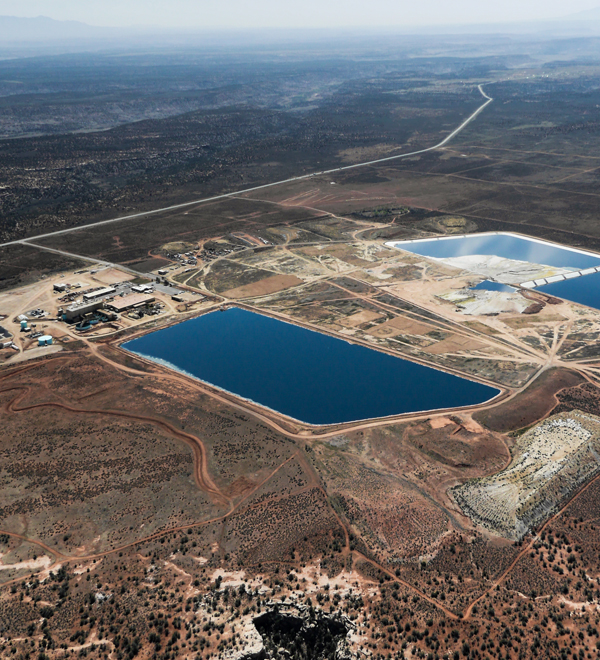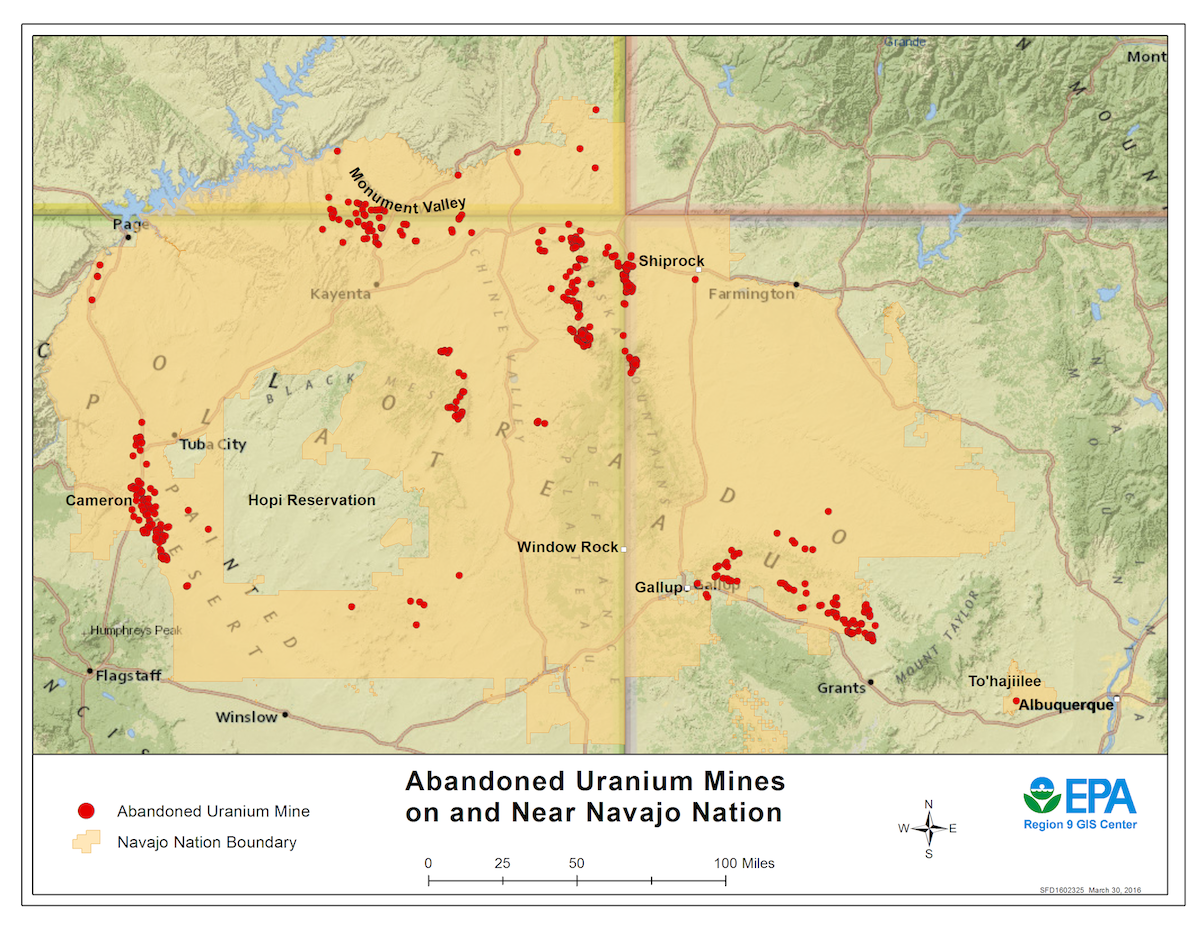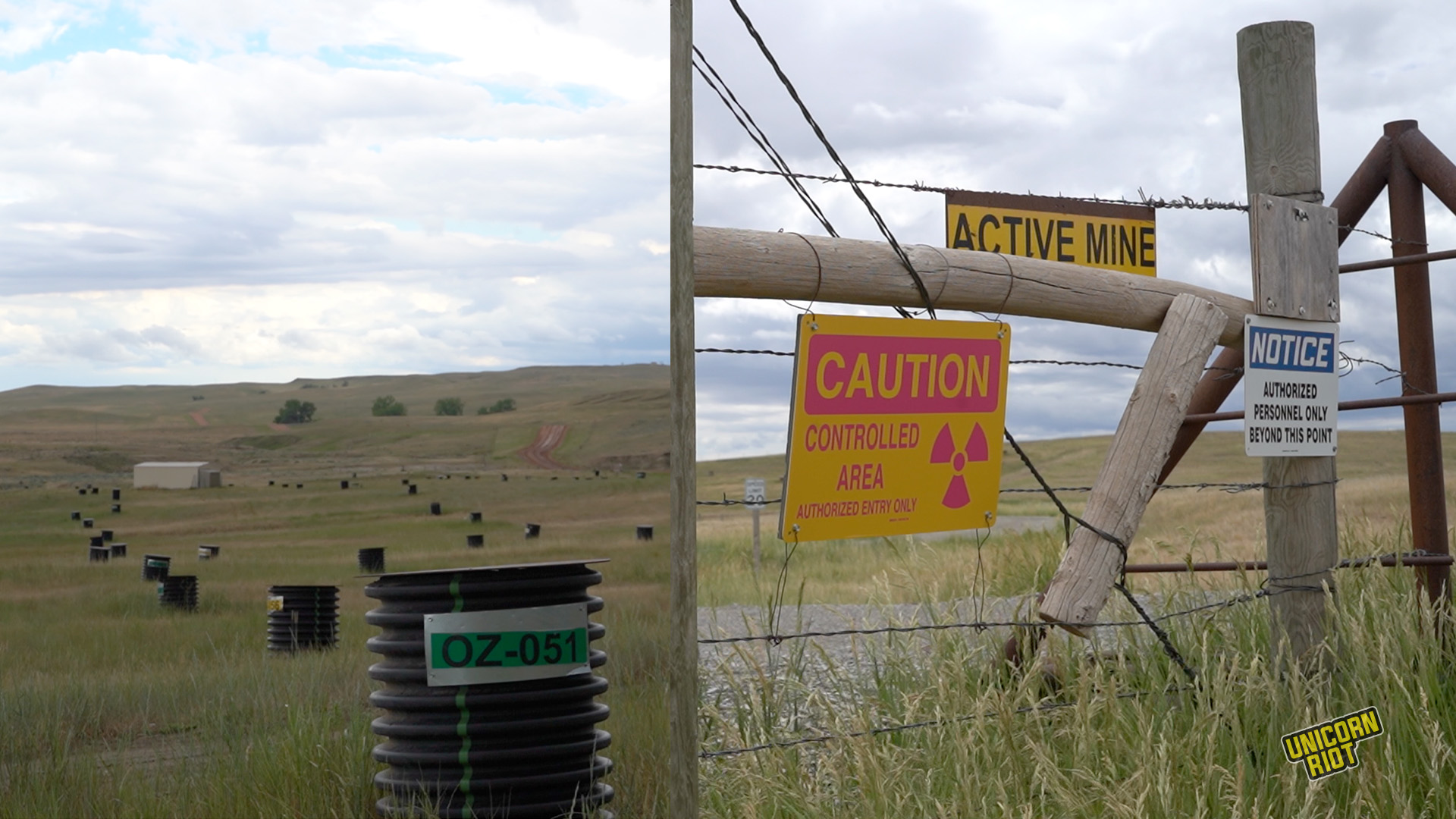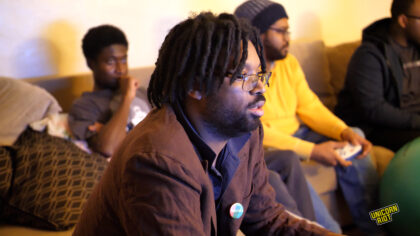Indigenous Human Rights Hearing in DC Scrutinizes Uranium Industry
Washington, D.C. — Members of multiple Indigenous tribes testified on February 28, 2024 during a thematic hearing on the impacts of uranium exploitation on the human rights of Indigenous peoples in the United States. The hearing was held by the Inter-American Commission on Human Rights and allowed “Native communities who have lived for generations with the waste from historic uranium mining and milling to hold U.S. government officials to account in a public forum,” according to a press release.


“For decades, the U.S. government’s dismal human rights record related to uranium exploitation in indigenous communities has been overlooked, ignored and suppressed. This will be the first time the U.S. government has been called on to explain why U.S. uranium policy continues to destroy native communities.”
Legal Director Eric Jantz, New Mexico Environmental Law Center
The Indigenous community members who testified were Edith Hood and Teracita Keyanna (Navajo Nation) with Red Water Pond Road Community Association, Anferny Badback and Yolanda Badback (Ute Nation) with White Mesa Concerned Community, Tonia Stands (Oglala Lakota Nation) with Magpie Buffalo Organizing, Carletta Tilousi (Havasupai Tribe) with Havasupai Tribe Anti-Uranium Subcommittee, and Big Wind Carpenter (Northern Arapaho Tribe).

Following their testimony, the U.S. government had the opportunity to respond, and the Commission had the opportunity to ask community members and government officials questions.
According to Jonathan Perry, a coordinator with Multicultural Alliance for a Safe Environment, “This Thematic Hearing would document the consequences of the U.S. government in their continued violations of human rights within their own policies and regulations.”
In addition to the official documentation of the historic uranium exploitation, Eric Jantz, the legal director of New Mexico Environmental Law Center, told Unicorn Riot that he hopes the Commission will adopt their policy recommendations and “hold the U.S. accountable to them.”
Jantz spoke about the government’s continued promoting and subsidizing of the uranium industry in the same communities where abandoned and toxic mines remain. “The U.S.’s policy has been one of ‘exploit the resource and ask questions later.'”
“Never before has the U.S. been called to answer for those human rights violations.”
Legal Director Eric Jantz, New Mexico Environmental Law Center
The hearing was streamed at 11 a.m. EST on the Inter-American Commission on Human Rights’ website, and on their YouTube page.
Previous Related Coverage:
EPA to Hear Public Comments in Proposed Uranium Mine in Black Hills
Inaugural ‘No Uranium in Treaty Territory Summit’ Held in Rapid City
Follow us on X (aka Twitter), Facebook, YouTube, Vimeo, Instagram, Mastodon, Threads, BlueSky and Patreon.
Please consider a tax-deductible donation to help sustain our horizontally-organized, non-profit media organization:



